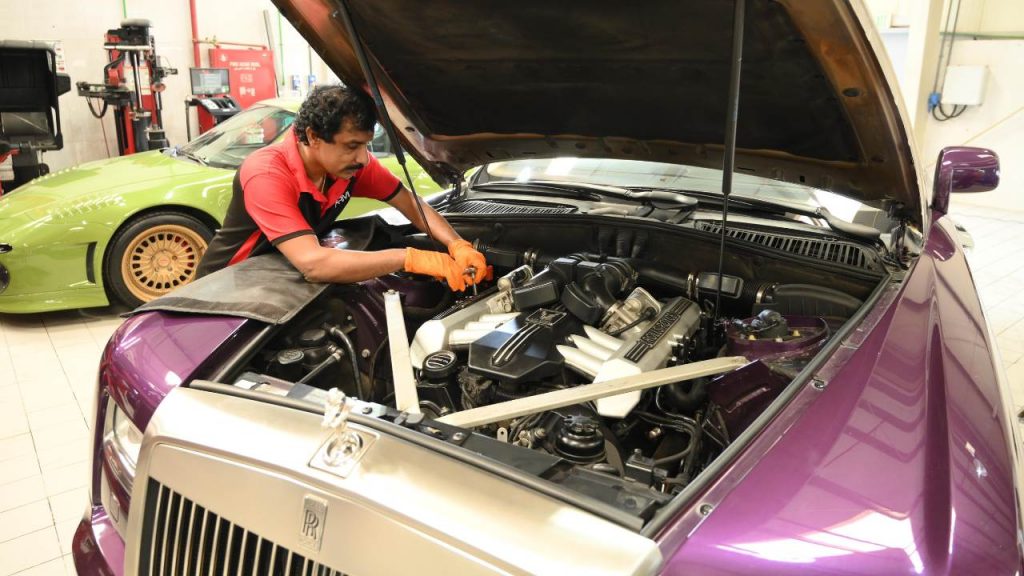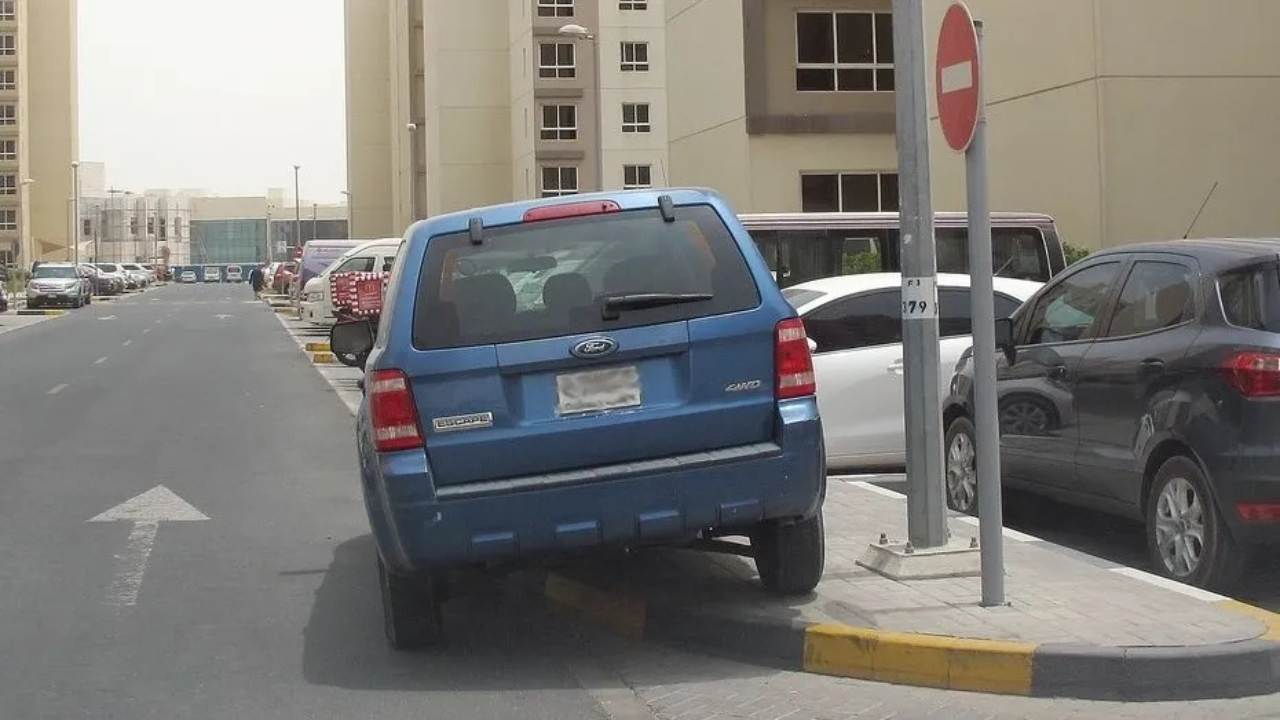Hearing the weird sound each time you press the accelerator? Noise is one of the first indicators that something may be wrong with a vehicle. Rattles, squeals or knocking sounds are perhaps some of the first signs that a mechanic may be needed. Turning a blind eye to them may result in more significant and expensive damage in the long-term perspective. It could be the exhaust, engine parts, drivetrain, or even loose parts of other components in the vehicle.
Knowledge of how certain noises happen will enable you to take timely actions to prevent breakdowns. In this article, ARMotors will explain the most frequent and underappreciated reasons why your car may sound peculiar when starting to gain speed-and how to diagnose it and other crucial details.
Possible Root Reasons: Your Car Sounds Weird While Accelerating
When your car says something extraordinary upon the activation of the accelerator, it is a signal that something is wrong under the hood or under the vehicle. These sounds may be rattling or hissing, squealing or knocking and these represent different types of problems.
To make it easier to define what exactly is happening, here range of the most common and potential causes of the weird sounds that occur when you accelerate.
Exhaust System Issues
- Rattling: The usual reason is a loose or broken exhaust hanger, rattling pipes or a failing catalytic converter.
- Exhaust Leak: A hole in the muffler, a failed exhaust manifold seal, or referred to as a blown exhaust manifold gasket, can cause a roaring sound at high speed or even a hissing sound.
- Clogged Catalytic Converter: When a catalytic converter becomes badly plugged, the increased back pressure will produce a loud roar or sputtering sound when the vehicle is accelerated.
- Cracked Resonator: A damaged or failing resonator can produce loud buzzing/humming sounds as well as metallic sounds under acceleration.
- Busted Flex Pipe: Flex pipe takes the movement of the engine; in case of any damage, the flex pipe can lead to loud exhaust sound or vibration when the engine is cycled.
- Rusts or Corrosion: Rusts can eat through mufflers and pipes and cause a hole and a growl to be heard as you accelerate further.
- Misaligned Exhaust Pipes: The pipes may come out of position and rattle against the chassis creating metallic clunking noises with every bump or pothole.
Engine & Drive Components
- Engine Mounts: Damaged or worn engine mounts may be transmitting vibrations throughout the engine and the vehicle so your car will have a rattling or vibrating sound when you accelerate.
- Pulleys & Drive Belts: Screeches, whines, or squeals of high pitch can be a sign of a loose or worn serpentine belt, or a bad pulley.
- Bearings: A scraping or screeching noise especially when covering an acceleration might be an indication of a failing vehicle wheel bearing.
- Transmission Problems: A whining or grinding sound might be an indication of a low fluid level in the transmission, worn out clutch or other internal transmission problems.
- CV Joints: Clicking or popping during acceleration or turning and refers to the possibility that a CV joint is worn out.
- Alternator: A whining during acceleration and/or an alternator whose sound depends on the tune of the engine can indicate a failing alternator.
- Worn Engine Parts: Knocking, ticking or rattling sound may be signs of worn engine parts, such as the piston, valve and bearing.
- Timing Chain or Belt Trouble: The sound that is produced during the moment of acceleration can be a squeaky or clapping noise which will be an indication of a worn timing chain or loose timing belt.
- Fuel Injector Sound: At some point, they could be a sound when being idle or during their formation of an issue when subjected to a load.
Other Possible Causes – Optional Additions
- Tires: Worn or uneven tires, a flat tire, or an under-inflated tire can also result in noise, especially a slapping or roaring sound when the car accelerates.
- Loose Heat Shields: The heat shields of the exhaust system may loosen and rattle, usually during hard acceleration when the exhaust system expands.
- Vacuum Leaks: A hissing or whistling sound, particularly when the car is accelerating can indicate that there is a vacuum leak somewhere in the intake manifold or hoses.
- Air Intake Problems: A faulty or clogged air filter or air abundance can also trigger some abnormal noises since your engine cannot get air effectively under stress.
- Turbocharger Problems: When a turbocharger is failing, one may hear a high-pitched whining or whooshing sound.
- Rattling panels or Components: Other noises are made by the dashboard panels, glove box, and door trims which shake when the car is accelerating.
- Underbody Debris: This is the one under the car doors or under body objects like plastic, cardboard, or stones that may be trapped beneath the car and flap or shake either at higher speed or during acceleration.
- Pre-Ignition: A pinging or knocking sound can be attributed to bad-quality gas, carbon buildup, or incorrect timing on the ignition system.
- Poor-Quality Aftermarket Parts: Substandard aftermarket exhaust, intakes or engine parts may make noise unexpectedly when the vehicle accelerates.
- Loose Suspension Parts: Suspension parts such as the sway bar links or control arm bushings can make the vehicle knock or thud in acceleration or on or off bumps.
How to Diagnose Acceleration Noises Yourself?
Early diagnosis of the noise source saves time, money and severe damage as well. Note when, where and how the bruise noise takes place:
- Noise increases with Speed: The problem is likely to be tires, the wheel bearings, or other parts of the drivetrain.
- Whining or Grinding on Gear Shifts: May be an indication of transmission trouble, e.g., the problem may be a dirty transmission or a worn-out clutch.
- Noise When Turning: A sensation of a clicking noise when turning is evidence of either worn or damaged CV joints.
- Rattling at Idle or When Accelerating: The most probable reason is the loose components of the exhaust system or engine mounting.
- Pattern Observation: How often does the noise start with a cold start, warm up or just when under the load?
Are Strange Noises a Safety Risk?
Strange noises can not be disregarded, since they usually indicate some safety risks:
- Failed CV Joint: It may break after some time and lead to loss of control completely during driving.
- Detachable Parts of the Exhaust: Can get detached on the road, which is dangerous to the other road users.
- Transmission or Engine Knocking: May lead to a sudden or complete failure of the engine.
- Tire or Suspension Limitations: Can cause poor handling and loss of control or even blow-out.
- Procrastinating Repairs: Causes both monetary and general risk to safety of the driver and passenger.
Repair Costs & How Urgent the Fix Really Is?
The knowledge of the extent of the problem assists you to understand what should be undertaken urgently:
- Loose Exhaust Hangers or Heat Shields: Not the costliest mending available, range in price from AED 100 to 300.
- Worn Engine Mounts or CV Joints: Wear and tears that will require moderate repairs, which ordinarily will cost between AED 500-1,000.
- Transmission Problems: May be critical (such as worn clutches, low fluid) and may require an amount between AED 1,500 and more than 5,000 in line with the extent of the damage.
- Timing Chain or Internal Engine Noise: This should be very expensive and time-sensitive and may give you back some AED 3,000 or more including labor and parts.
Book a Professional Inspection Today
Minor sounds should be attended to within a short time and this eliminates big repairs and expensive repairs. There is no need to splurge the money elsewhere when you can get all luxury, sports, and supercars in Dubai and other parts of the UAE diagnosed and repaired at ARMotors.
Waiting until the problem becomes critical is not the most intelligent thing to do so seek a thorough examination of your unit by our professional technicians to get your full peace of mind.
Final Thoughts
Weird acceleration sounds, such as rattling, knocking, or whining engine or vehicle sounds, may be warnings indicating that something terribly wrong has happened to the exhaust, the drivetrain, or other engine components. The following guide discusses the most prevalent reasons, including whether the CV joints are worn, whether exhaust pieces are rattling, and if there is a faulty transmission.
It also gives your insight into how to find out the problem yourself, the dangers of neglecting the problem and how fast each problem needs to be tackled. Understanding these sounds early can save you from expensive repairs, safety hazards, and sudden breakdowns—especially in high-performance vehicles where precision and reliability are key.





